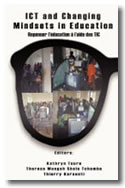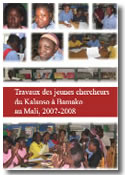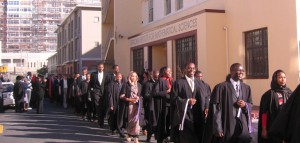AIMS: Unleashing Africa’s beautiful minds September 12, 2013
Newton, Einstein, Hawking — they showed us the power of one beautiful mind to radically alter our understanding of the universe. Clarisse Uwizeye could be the next genius to turn science on its head, yet the world nearly lost her beautiful mind.
At age seven, Uwizeye barely escaped the genocide in her homeland of Rwanda, fleeing with her family to the Democratic Republic of Congo. Two years later, war came to Congo and the family had to run again, back to Rwanda. Her parents vanished, never to be seen again.
With some support from her two older sisters, Uwizeye told us she persevered. Consistently at the top of her class, she won admittance to one of Rwanda’s best high schools. There, her academic career nearly ended when she couldn’t afford the fee to write a critical exam. A teacher donated one month’s salary to keep her in school. Uwizeye went on to earn a full scholarship to the National University of Rwanda, where she showed passion and aptitude for mathematics. Teachers and schoolmates urged Uwizeye to aim for a PhD, but she had little money and no PhD programs at her university. These seemed like the final, impassable barriers — until she heard about the African Institute for Mathematical Sciences (AIMS).
What makes a developed country developed? We have reliable access to food, clean water and sanitation; health care systems that protect us from preventable illness and death; universal primary and secondary education. Just as important, we have an extensive post-secondary system churning out the doctors, teachers, engineers and scientists who make all those previous accomplishments possible.
Development programs tend to focus on the basics — food, water, sanitation and basic education. But to transform a developing nation into a developed one ultimately requires unleashing its native genius — people like Uwizeye — through higher education.
“There’s no way the economy in Africa is going to be competitive without these people,” argues Neil Turok, director of Canada’s world-renowned Perimeter Institute for Theoretical Physics, based in Waterloo, Ont.
Turok told us he believes the next Albert Einstein will come from Africa. That’s why he established AIMS — a pan-African project partnering with universities in Africa, North America and Europe to find Africa’s nascent geniuses by offering advanced degrees in mathematical sciences like physics.
“If you can take a young African from a village in Rwanda and turn them into an advanced mathematician making real contributions to knowledge, that is profoundly important to show the youth of Africa they are every bit as capable,” Turok says.
Turok conceived of AIMS while on sabbatical in his birthplace of Cape Town, South Africa. He convinced the three major universities in the Cape Town region, as well as the Universities of Cambridge and Oxford in the UK, and the Université de Paris Sud XI in France, to become founders. The first AIMS campus opened in Cape Town in 2003. Since then, many educational partners have flocked to support AIMS, including the Perimeter Institute and the University of British Columbia. There are now AIMS campuses active in Senegal and Ghana, and soon a fourth in Cameroon. The AIMS “Next Einstein” initiative hopes to have 15 academic centres up and running in the next decade.
Upon finishing her bachelor’s degree in mathematics in Rwanda, Uwizeye was awarded a scholarship to do her master’s at the AIMS Senegal Campus. Uwizeye says she was surprised to find a school unlike any other, with classes like Biomedical Signal Processing, and Algebra and Cryptography.
Turok told us his program “leapfrogs over what is already known and goes straight to the cutting edge,” bypassing classic textbooks and teaching methods. In the morning, students sit down for a standard lecture, then in the afternoon they are presented with a problem they must solve based on the morning lecture topic. Turok argues this teaches the AIMS students the skill of problem-solving — something he said is not taught in the average Western theoretical physics classroom, and that students must therefore learn on their own.
AIMS has now graduated more than 400 students. With her AIMS master’s degree under her belt, Uwizeye earned a scholarship to study advanced applied physics at a top university in France.
“I will return home after my PhD studies, then help my country in mathematics and physics,” she told us. “I have a dream to build a school of sciences and art in my country.”
Albert Einstein changed our understanding of the universe. Uwizeye could well change our understanding of the universe and international development.
By Craig and Marc Kielburger, Ottawa Citizen, September 8, 2013
Craig and Marc Kielburger are co-founders of international charity and educational partner, Free The Children. Its youth empowerment event, We Day, is in 11 cities across North America this year, inspiring more than 160,000 attendees from over 4,000 schools. For more information, visit www.weday.com
© Copyright (c) The Ottawa Citizen
www.ottawacitizen.com/business/Unleashing+Africa+beautiful+minds/8885058/story.html




Leave a Reply